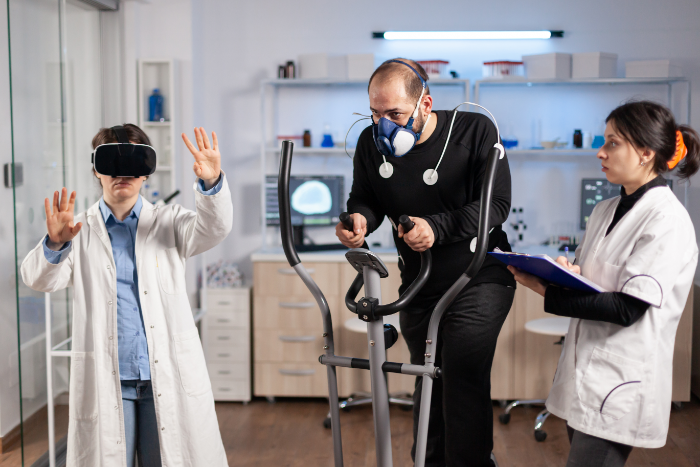Introduction
What Is Healthcare Information Technology?
Definition of HIT
Healthcare Information Technology refers to the application of IT tools and solutions in healthcare to enhance efficiency, improve patient outcomes, and streamline processes. It bridges the gap between technology and healthcare, transforming how care providers and patients interact.
Core Components of HIT
HIT is a broad field encompassing various technologies:
- Electronic Health Records (EHRs): Digital versions of patient files that make healthcare delivery more efficient and accurate.
- Telemedicine Platforms: Tools that enable virtual consultations, allowing patients to access care remotely.
- Healthcare Data Analytics: Systems that analyze patient data to improve diagnoses, treatment plans, and resource allocation.
These components are central to modern healthcare, raising the question, “Is Healthcare Information Technology a Good Career Path?” HIT professionals play a crucial role in advancing these systems and ensuring they function seamlessly.
The Growing Demand for HIT Professionals
The demand for HIT experts has been skyrocketing due to several factors:
Rising Healthcare Needs
The global population is aging, and with it comes an increase in chronic diseases and healthcare requirements. HIT helps address these needs efficiently.
Digital Transformation in Healthcare
Hospitals, clinics, and other facilities are adopting digital tools to enhance care quality. This transformation creates a constant demand for skilled IT professionals who understand healthcare systems.
The Role of Data in Decision-Making
Healthcare decisions are increasingly data-driven. From predictive analytics to real-time monitoring, HIT professionals ensure data is harnessed effectively.
Benefits of a Career in Healthcare Information Technology
Choosing HIT as a career comes with several advantages:
High Job Stability
Healthcare is one of the most stable industries, and the integration of IT only strengthens its resilience. This stability translates to consistent job opportunities for HIT professionals.
Competitive Salaries
Healthcare IT roles are well-compensated. Entry-level positions can start at $60,000 annually, while experienced professionals often earn six figures.
Opportunities for Growth and Advancement
With the rapid evolution of technology, HIT offers endless opportunities to specialize in areas like data analytics, cybersecurity, or AI integration.
Skills and Education Requirements
Before diving into HIT, it’s important to understand the qualifications and skills required:
Necessary Educational Background
A strong educational foundation is crucial for success in HIT:
- Degrees in Health Informatics: A bachelor’s or master’s degree in health informatics or a related field provides a solid start.
- Certifications: Certifications like the Certified Professional in Healthcare Information and Management Systems (CPHIMS) enhance your credibility.
Technical and Soft Skills
- Technical Proficiency: Knowledge of databases, programming languages, and IT systems is essential.
- Problem-Solving and Communication Skills: HIT professionals often collaborate with diverse teams to address complex challenges.
Challenges in the Field
While rewarding, a career in HIT comes with its own set of challenges:
Rapidly Changing Technology
Keeping up with technological advancements is essential but demanding. Professionals must continually update their skills.
Data Security Concerns
With sensitive patient information at stake, ensuring data security and privacy is a major responsibility.
Managing Complex Regulations
Healthcare is heavily regulated, and compliance with laws like HIPAA requires meticulous attention to detail.
Popular Job Roles in Healthcare IT
HIT offers a diverse range of roles, catering to various interests and skill sets:
- Health Informatics Specialist: Focuses on improving healthcare delivery through technology.
- Clinical Systems Analyst: Analyzes and optimizes healthcare IT systems for better performance.
- Health IT Consultant: Advises organizations on implementing and managing HIT solutions.
- Data Analyst in Healthcare: Interprets complex data to provide actionable insights for improving patient care.
Industries That Hire Healthcare IT Professionals
HIT experts are in demand across multiple sectors:
Hospitals and Clinics
These institutions rely on HIT professionals to manage EHRs, patient portals, and other IT systems.
IT Companies Focused on Healthcare
From startups to multinational corporations, tech companies developing healthcare solutions are major employers.
Government and Public Health Agencies
These organizations use HIT to manage public health data, research, and policy implementation.
How to Start Your Career in HIT
Choosing the Right Education Path
Begin by selecting a degree or certification program aligned with your career goals. Look for institutions that offer hands-on training and internships.
Gaining Practical Experience
Internships and entry-level roles provide valuable experience and insights into the industry.
Networking and Building Connections
Join professional associations like HIMSS and attend industry events to expand your network.
The Future of Healthcare Information Technology
HIT is not just a promising career today; its future is even brighter:
AI and Machine Learning in HIT
AI is revolutionizing healthcare by enabling precise diagnostics and personalized treatments.
Increased Use of Big Data
The healthcare industry is leveraging big data to predict trends, improve patient outcomes, and optimize resources.
Expanding Opportunities in Rural and Global Healthcare
Telemedicine and other HIT innovations are bridging healthcare gaps in underserved regions.
Conclusion
Healthcare Information Technology offers a fulfilling career path for those passionate about technology and healthcare. With high demand, competitive salaries, and opportunities for growth, it’s an excellent choice for anyone looking to make a difference in the healthcare industry. However, staying updated on technological advancements and industry regulations is key to long-term success in this field.
FAQs
- What is the average salary for a healthcare IT professional?
Entry-level roles start around $60,000, with senior positions exceeding $120,000 annually. - Is a degree necessary for a career in HIT?
While a degree isn’t mandatory, it significantly enhances job prospects and career growth opportunities. - How secure is a career in healthcare information technology?
With healthcare’s steady growth and reliance on IT, a career in HIT is highly secure. - What are the major companies hiring in this field?
Companies like Epic Systems, Cerner, and government agencies are top employers in HIT. - Can HIT professionals work remotely?
Yes, many roles, particularly in data analysis and consulting, offer remote work options.





